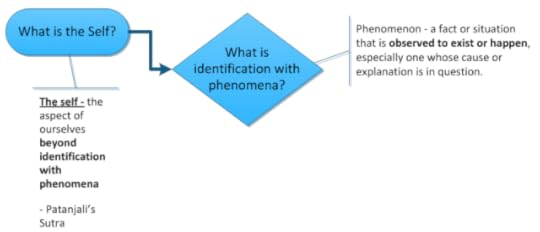Who Are You? – Dialectic Two Step
Estimated reading time: 15 minute(s)
Who Are You?
Who are you? It’s a perfectly reasonable question. You’d expect a straightforward answer. On the surface its abundantly clear. In a single gesture the answer is apparent. You point to yourself and the conversation is over. But, ask a philosopher or a priest, and suddenly, things get complicated. The Buddha even contributed to the morass. So what’s all the fuss?
Dualism is a complicated, roundly rejected philosophical idea. It is also one of the most entrenched ideas in the world. Its a compelling fiction about who we are. It’s the idea that we are composed of two types of stuff: matter and mind stuff. The matter part is uncontroversial. It’s the mind stuff that gets messy. When it comes to mind, its not a stretch to think that ideas, volition, intention and so on don’t fit into the category of matter. When we dig into the question of who we are, people are perfectly content to speak of the soul or the ineffable self.
Let’s start digging to see what I mean. I’m going to look at this from an eastern perspective. First because it gives us a little distance from ideas that many westerners get defensive about, and because the definitions tend to be generically clear. Follow this flow chart.
The first step is establishing the dualism itself. In Patanjali’s Yoga Sutra, there is a very good working definition of the self. It is not matter, or not observable in the way matter is.
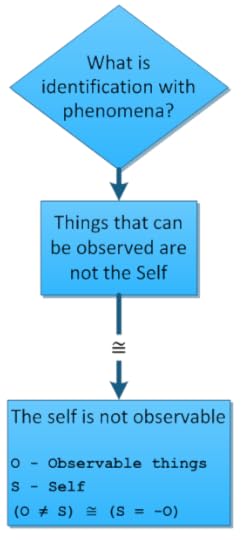
Now we have stepped into the world of mysticism – belief that spiritual apprehension of knowledge inaccessible to the intellect, may be attained through contemplation. I want to establish some boundaries on what we can and can’t talk about in the world of mysticism. Language is the medium for conceptualizing the experience of phenomenon. Self, by this definition, is not phenomenon. So we can’t talk about it, or to be more precise, we can’t use it as a premise or conclusion in a logical argument.
Self, as defined by the Sutra, is an empty concept. It is a place holder for something without definition. This is very important, because mysticism can be a curtain. People will produce all kinds of nonsense from behind it. As soon as you apply an attribute (color, dimensions, or other quality) to something mystical, you are breaking the rules. Something that is other than phenomenon, is by definition free from observable attributes. For example, you can’t claim that the soul carries your personality. Your personality is distinctly observable.
So in the language of logic, we have two ways of producing conclusions about something. Deduction and induction. Both take as premises, verifiable phenomenon. For instance take the following deductive argument:
ArgumentPremise P1: All cats have tails
Premise P2: Stella is a cat
Conclusion: Stella has a tail
Two things give us confidence in the veracity of the conclusion.
That the structure of the logical argument is valid
That the premises are verifiably true.
Take another deductive argument:
ArgumentPremise P1: All Trolls smell bad
Premise P2: Stella is a troll
Conclusion: Stella smells bad
In this case the logical argument is valid (it’s the same argument as above), but the premises can’t be verified, because there are no trolls in the world we live in.
Induction works similarly. Induction relies on patterns of premises. Take the most common inductive argument.
ArgumentPremise P2: Everyday of my life the sun has risen in the east
Conclusion: The sun will rise in the east tomorrow
If the premise is verifiably true, we have a high degree of confidence in the conclusion. At the very least least we would say if the conclusion were wrong, that something unusual intervened to change the suns behavior. When something is unverifiable (i.e. beyond identification with phenomenon), the truth of it will forever be unknown. For all intents and purposes the concept is without any value to us. It’s a dead end.
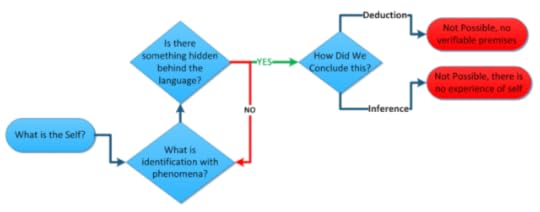
So all this raises the question: Why talk about the self, or the soul at all? What purpose would we have?
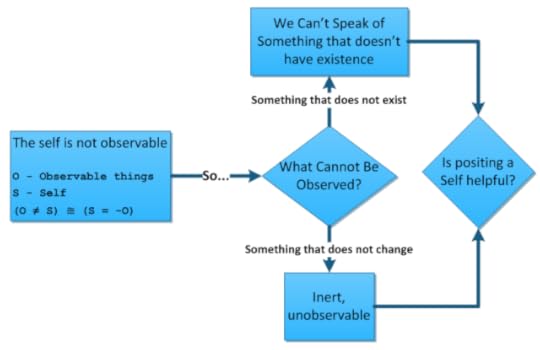
A few thoughts I had were as follows. But they all reach a dead end.
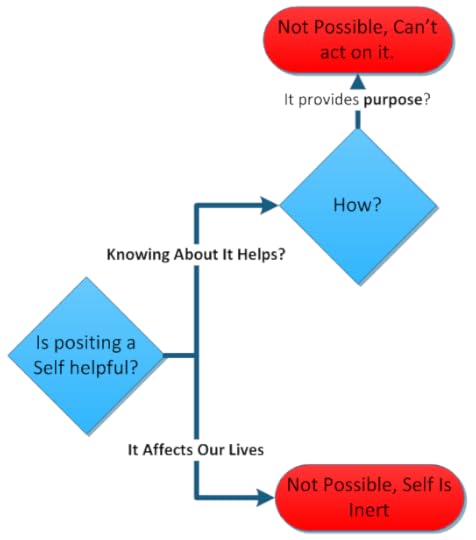
Unfortunately we’re left with an unsatisfactory feeling in our guts. Most of us find the concept of self useful, even if we don’t have a totally clear sense of the details. What gives?
Here’s where the Buddha* saved the day. He asked the question, is the self really separate from phenomenon? Granted there are some puzzles around a phenomenal self; for instances which phenomenon are us and which are not? And, If you were to remove some qualities of the phenomenal self – e.g. hair, a limb, or a personality trait – would we no longer be our selves? But the answer seems to be intuitively yes. If the self is phenomenal, then it is subject to change. Self changes. Self is impermanent.
The Buddha seems to have rejected dualism or at least he chose not to mix mind stuff into logical arguments about the way things are. Puzzles still remain. The Buddha’s way is bound by experience and avoids conjecture about what might lie beyond the veil of mystery.
*NOTE: The Buddha preceded Patanjali’s Sutra (the Sutra is considered by some to be Hinduism’s response to the Buddha)
Dialectic Two-Step is an ongoing series of my thoughts on questions that come my way.
Wisdom lies neither in fixity nor in change, but in the dialectic between the two. - Octavio
Get Each Week's Dialectic Two Step in your email box
First Name:
Last Name:
Email address:
In addition to a monthly email you can also subscribe to the following weekly series:
One Minute Meditations
Tiny Drops (Photography series)
Compass Songs (My Favorite Poems)
Dialectic Two-Step
Modern Koans (interesting questions)
Sunday Morning Coming Down (Music Videos)
Relics (Timeless Republished Articles)
Say What?
Quotes
Verse Us (Poems I Write)
The post Who Are You? – Dialectic Two Step appeared on Andrew Furst.

